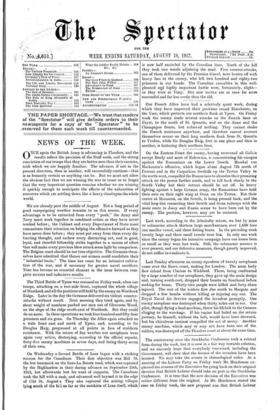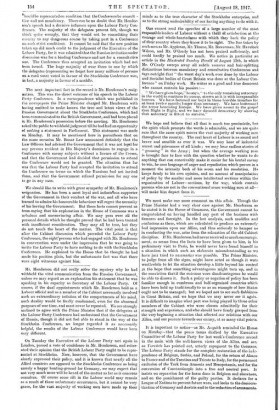The controversy over the Stockholm Conference took a critical form
during the week, but it is now in a fair way towards solution, and we sincerely hope that everybody concerned, including the Government, will chow that the lessons of the occasion have been learned. We may take the events in chronological order. At a meeting of the Labour Party on Friday week Mr. Henderson ex- plained the reasons of the Executive for going back on their original decision that British Labour should take no part in the Stockholm Conference. It is true that the new decision of the Executive was rather different from the original. As Mr. Henderson stated the ease on Friday week, the new proposal was that British Labour ° hould be represented on condition that theConferenee be consult - tive and not mandatory. There can be no doubt that Mr. Header- eon's speech had a decisive influence upon the Labour Party Con- ference. The majority of the delegates present felt,-though we think quite wrongly, that they would not be committing their country to any dangerous course by taking part in a Conference on such strict conditions. It cannot be said that-the new position taken up did much credit to the judgment of the Executive of the Labour Party, for it was admitted that the Russianinvitationunder discussion was for a binding Conference and not-for a consultative one. The Conference thus accepted an invitation which had not peen issued. The large majority of over three to one by which the delegates (representing we forget how many millions of persona en a card vote) voted in favour of the Stockholm Conference was, in fact, a majority in favour of a muddle.



























 Previous page
Previous page